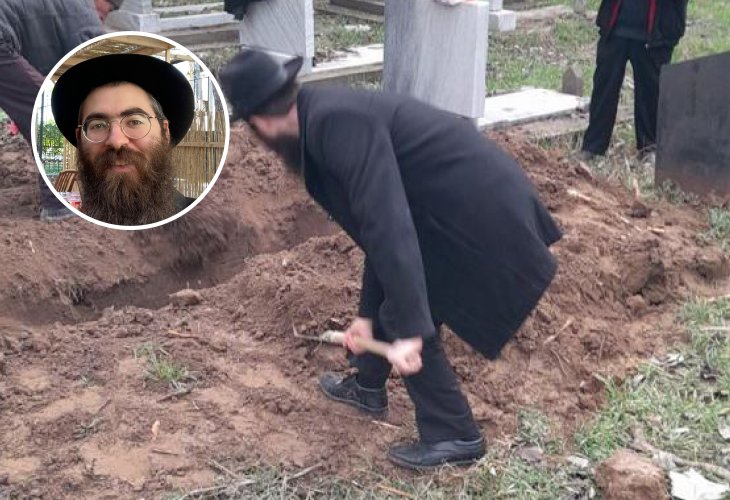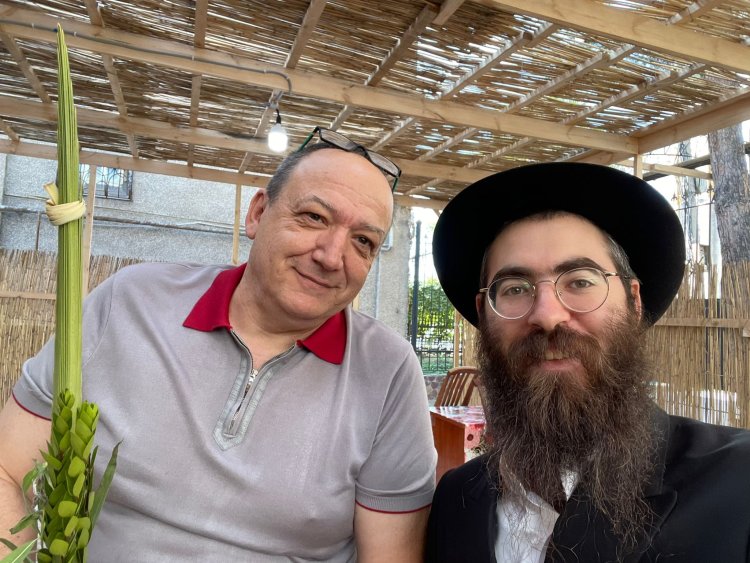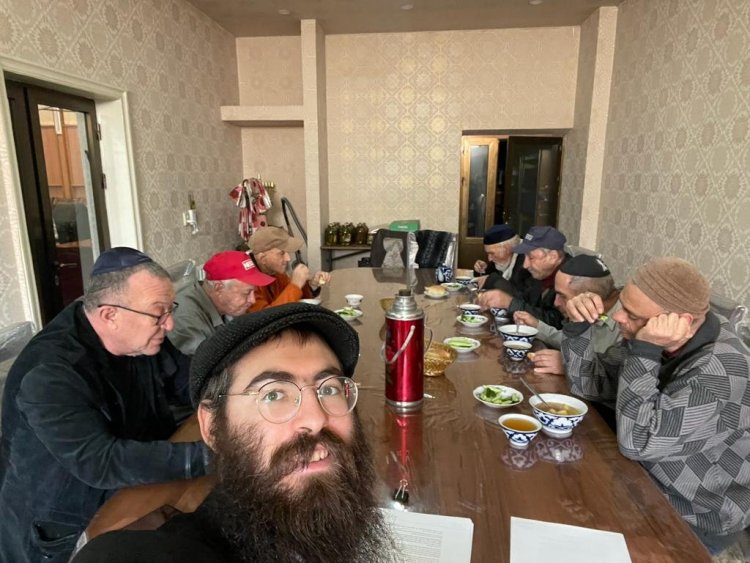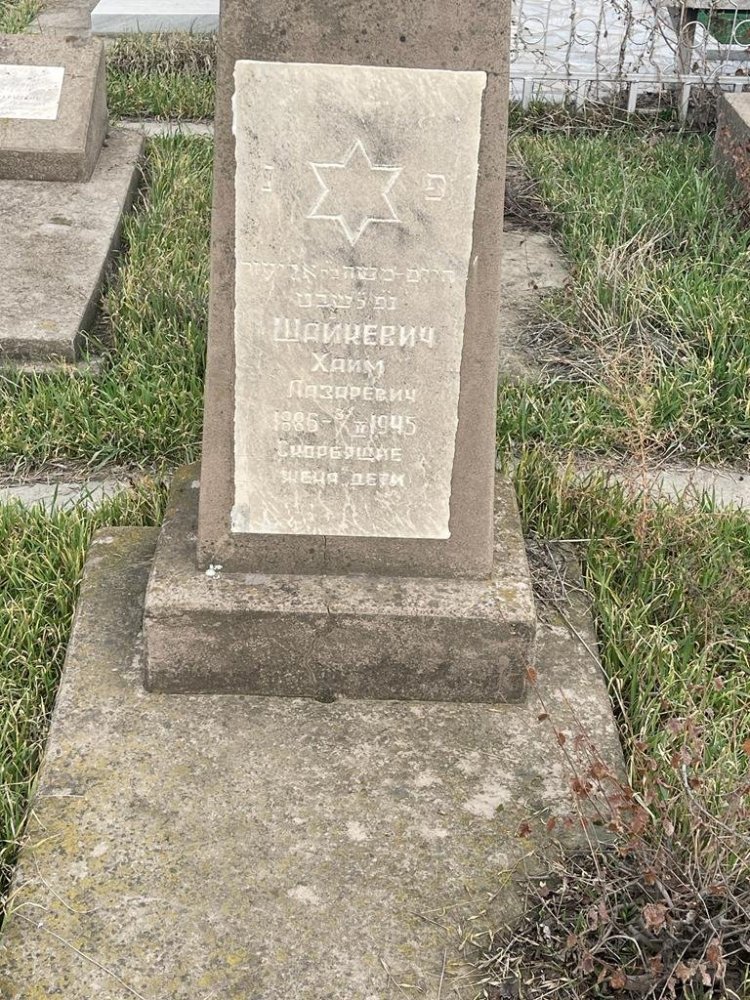"I Found My Full Name on a Tombstone, I Was in Shock"
When Chabad emissary Rabbi Moshe Shaykevitz visited a cemetery in Tashkent, he was stunned to find his full name inscribed on a tombstone. What followed was even more surprising.

Rabbi Moshe Shaykevitz, a Chabad emissary in Tashkent, the capital of Uzbekistan, stood in the Jewish cemetery, covered in mud and his clothes soaked with water, unable to believe his eyes. He had come to the location to search for the grave of a Jewish woman who had apparently died in Tashkent many years ago. To his surprise, he discovered another grave that left him in complete shock. "I am telling this story and still cannot believe what happened," he says with much excitement. "There is such a wondrous divine providence here, I truly feel that Hashem directed me specifically to the cemetery at this time and place. There is no other explanation."
A Mission of Purpose
The story actually began last year when Rabbi Shaykevitz and his wife arrived to serve as emissaries in Uzbekistan, and since then they have been involved in intensified activities. "There are approximately 1,000 Jews living in Uzbekistan, but not all of them are aware of their Jewish identity," he explains. "We try to strengthen Judaism in the city in every possible way; we visit synagogues every Shabbat, celebrate holidays together, and mark special days. Of course, there are Jews in the city who feel a stronger connection to Judaism, and there are those who are distant and less interested, but we strive to unite everyone together and find ways to strengthen the community."
The efforts of Rabbi Shaykevitz and his wife apparently reached farther ears, which led to a recent request from a Jewish man from the United States. The man told him he was looking for his great-grandmother's grave, who lived in Tashkent during the Holocaust. "He provided me with documents with her name and date of death, and from that moment, I was determined to undertake the task," says Rabbi Shaykevitz.
Initially, he approached the synagogue's gabbai in Tashkent to ask him to search the list of the deceased. However, after the search yielded no results, Rabbi Shaykevitz decided to go to the cemetery in person with the gabbai. This was not his first visit, as he recently had the opportunity to arrange the burial of a few Jews who passed away in the city. Only after their death was it discovered in their documents that they were Jewish and must be buried according to Jewish law. "But this time, it was a different section of the cemetery, where the great-grandmother was likely buried," he explains.


Total Surprise
Rabbi Shaykevitz set out with the synagogue gabbai, who guided him to the area in the cemetery where Jews from the '40s were buried, a place with a high chance of finding the great-grandmother's grave. "It was a rainy day," he recalls, "we waded through mud, examining each tombstone closely and checking what was written. I believe we examined about 1,000 tombstones, with some names appearing very Hasidic. It's possible their descendants are still searching for their graves, completely unaware they are buried in Tashkent's cemetery."
Then came the great surprise when on one grave he found a name identical to his own: Chaim Moshe ben Eliezer. A closer look at the tombstone also revealed the family name: "Shaykevitz." "I was stunned," he recounts. "It's exactly my name. Could it be a relative?"
Rabbi Shaykevitz decided to investigate the matter. He photographed the tombstone and asked his family if they knew of anyone in the family by that name. His relatives quickly informed him that it was none other than his great-grandfather. It turned out that for years they had been searching for his grave with no clue of its location since the family was not originally from Tashkent but had fled there due to Nazi atrocities. Only now, after many decades, it was revealed that the grandfather died and was buried in Tashkent.
"I suddenly realized that it was not by chance Hashem arranged for me to be an emissary in this city, and not by chance a Jew from the US who was searching for his grandmother came to me," notes Rabbi Shaykevitz, adding with excitement: "The date of my great-grandfather's death, as recorded on the tombstone, is the 20th of Shevat. This means I will soon be able to visit his grave and recite Kaddish. It chills me to think that this may very well be the first time someone will pray at his grave."
And the question arises: What about the great-grandmother's grave? Was it ever found?
"At this stage, unfortunately, it hasn't been found, but we do not despair. We will continue searching, and perhaps along the way we will discover additional graves that no one knows of..."


